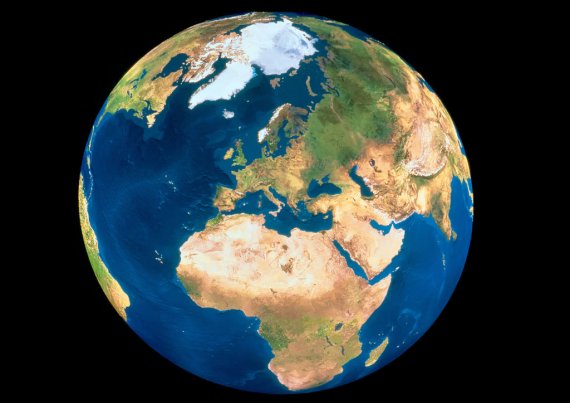How does one deal with the sometimes-depressing research results, such as the high pace at which the Greenland ice sheet appears to be melting? (seven times faster than in the 1990s!) © Shutterstock
Topics covered by this extracurricular activity include the controversies surrounding geo-engineering, dealing with research results that do not really put one in a bright mood and the debate with “climate change deniers”. ‘Many students start the Master’s programme Climate Studies with hope in their heart and want to contribute to society’, says student Leonie Koenders, who is involved in the development of the course. ‘But during their master’s, they are faced time and time again with how badly the climate is really doing. There is a chance that this will make their attitude turn to the negative. How one deals with this is not discussed in the regular courses. Those are merely focused on knowledge.’
Climate depression
It is sometimes called a climate depression; when one succumbs to all the negative reports about climate change. Is this a problem within the programme? Leonie: ‘I would personally not be quick to use the word “depression”. But there is indeed a lot of bad news. It is important to join fellow students and search for ways to stay positive about the field. Together, we can achieve a lot. If one person remains enthusiastic about the possibilities, they can take others along on the wave.’
Don’t get lost in the facts
The course also has room for the elephant in the room of climate studies: the climate change denier. ‘Through workshops and role plays, we want to prepare people for discussions about their research. Everyone has someone in their family or group of friends who doubts climate change’, says Laurens Ganzeveld, who helps with the course as chair of the MCL programme committee. ‘It is a hugely complex topic, and there is a significant risk that the listening party will get lost in the facts. That brings the discussion to a standstill. It’s better to ask the other person questions, search for a common ground. There is still a lot that we don’t know, and additional knowledge is welcome, but it is essential that we learn to transfer the knowledge that we do have.’
What’s in a name
The ‘climate resilience programme’ (Dutch: klimaatweerbaarheidsprogramma) as Nieuwsuur(in Dutch) called it last weekend, is taught over seven evenings and is primarily intended for current students of Climate Studies. ‘We weren’t too happy with what Nieuwsuur called it’, says Leonie. ‘The course is called “Climate change and I”, which better conveys the contents.’ Ganzeveld hopes that the lectures will become accessible to a wider audience in the future. ‘It is a theme that is and will remain topical for many Wageningen students.’

